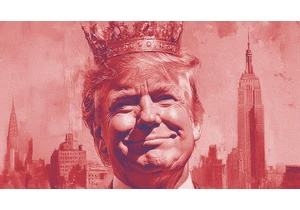Google lost its final legal challenge on Tuesday against a European Union penalty for giving its own shopping recommendations an illegal advantage over rivals in search results, ending a long-running antitrust case that came with a whopping fine.
The European Union’s Court of Justice upheld a lower court’s decision, rejecting the company’s appeal against the 2.4 billion euro ($2.7 billion) penalty from the European Commission, the 27-nation bloc’s top antitrust enforcer.
“By today’s judgment, the Court of Justice dismisses the appeal and thus upholds the judgment of the General Court,” the court said in a press release summarizing its decision.
The commission’s punished the Silicon Valley giant in 2017 for unfairly directing visitors to its own Google Shopping service to the detriment of competitors. It was one of three multibillion-euro fines that the commission imposed on Google in the previous decade as Brussels started ramping up its crackdown on the tech industry.
“We are disappointed with the decision of the Court, which relates to a very specific set of facts,” Google said in a brief statement.
The company said it made changes in 2017 to comply with the commission’s decision requiring it to treat competitors equally. It started holding auctions for shopping search listings that it would bid for alongside other comparison shopping services.
“Our approach has worked successfully for more than seven years, generating billions of clicks for more than 800 comparison shopping services,” Google said.
At the same time, the company appealed the decision to the courts. But the EU General Court, the tribunal’s lower section, rejected its challenge in 2021 and the Court of Justice’s adviser later recommended rejecting the appeal.
European consumer group BEUC hailed the court’s decision, saying it shows how the bloc’s competition law “remains highly relevant” in digital markets.
“Google harmed millions of European consumers by ensuring that rival comparison shopping services were virtually invisible,” director general Agustín Reyna said. “Google’s illegal practices prevented consumers from accessing potentially cheaper prices and useful product information from rival comparison shopping services on all sorts of products, from clothes to washing machines.”
Google is still appealing the other two EU antitrust penalties, which involved its Android mobile operating system and AdSense advertising platform. The company was dealt a setback in the Android case when the EU General Court upheld the commission’s 4.125 billion euro fine in a 2022 decision. Its initial appeal against a 1.49 billion euro fine in the AdSense case has yet to be decided.
Those three cases foreshadowed expanded efforts by regulators worldwide to crack down on the tech industry. The EU has since opened more investigations into Big Tech companies and drew up a new law to prevent them from cornering online markets, known as the Digital Markets Act.
European Commissioner Margrethe Vestager said that the shopping case was one of the first attempts to regulate a digital company and inspired similar efforts worldwide.
“The case was symbolic because it demonstrated even the most powerful tech companies could be held accountable. No one is above the law,” Vestager told a press briefing in Brussels.
Vestager, who’s expected set to step down in October as the commissioner overseeing competition issues after 10 years on the job, said the commission will continue to open competition cases even as it enforces the Digital Markets Act. The DCA is a sweeping rulebook that forces Google and other tech giants to give consumers more choice by following a set of dos and don’ts.
Google is also now facing particular pressure over its lucrative digital advertising business from the EU, which is carrying out an investigation, and authorities elsewhere.
In a federal antitrust trial that began Monday, the U.S. Department of Justice alleges that the company holds a monopoly in the “ad tech” industry.
British competition regulators, meanwhile, accused Google last week of abusing its dominance in ad tech.
—Kelvin Chan, AP Business Writer
Autentifică-te pentru a adăuga comentarii
Alte posturi din acest grup



As I write this, the most pleasing sound is washing over me—gentle waves ebbing and flowing onto the shore. Sadly, I’m not actually on some magnificent tropical beach. Instead, the sounds of the s

The relentless hype around AI makes it difficult to separate the signal from the

I don’t know about you, but I tend to think about my favorite tech tools as being split into two separate saucepans: the “classic” apps we’ve known and relied on for ages and then the newer “AI” a

The official White House social media account is under fire for posts that resemble something typically found on the internet forum 4chan.
A post shared on February 14, styled like a Val

The prospect of banning the sale of so-called
